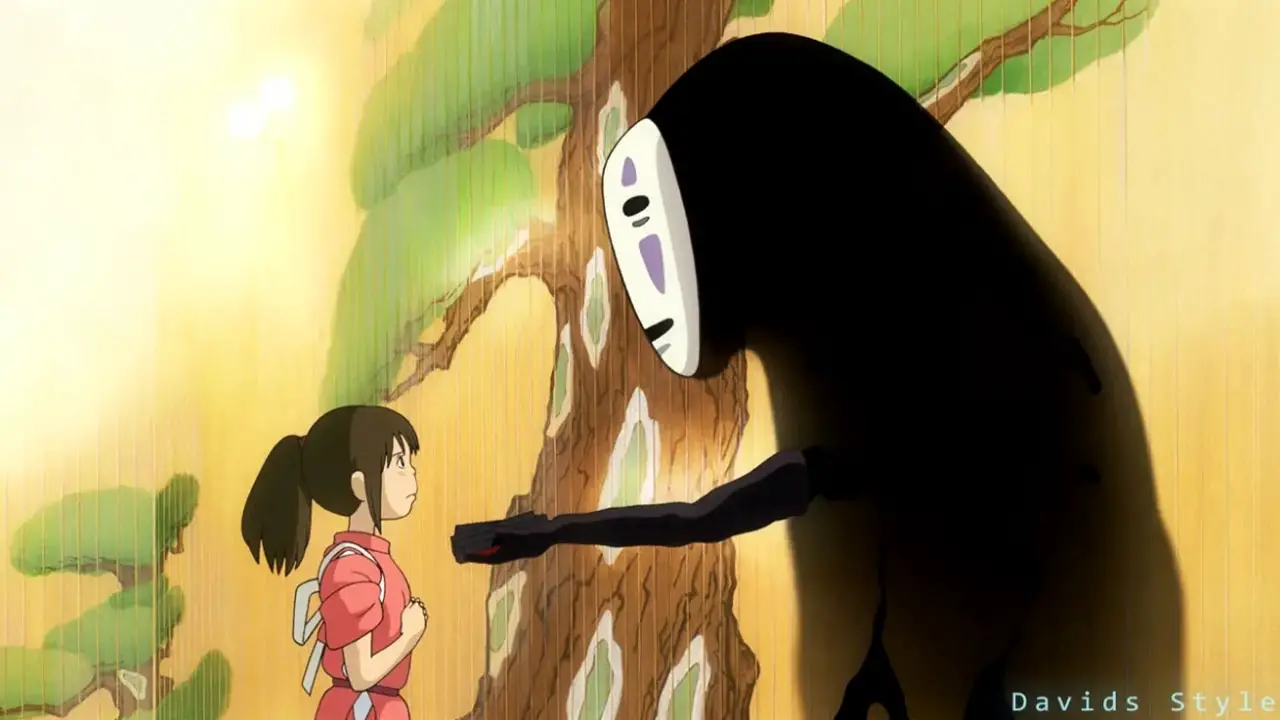Throughout Spirited Away, Chihiro encounters many characters that help to develop the film’s central themes. One of these characters is No-Face, a strange, voiceless creature with a white mask covering his face, who takes on special importance in the story. As Chihiro navigates through the spirit world, she meets No-Face at a bathhouse for spirits, and he immediately captures her attention. No-Face is a tall, nearly transparent black blob with a distinct lack of features. All that can be seen is his white mask, which displays an expressionless smile.
Intrigued by No-Face’s appearance, Chihiro soon realizes that he is not what he seems. No-Face’s desire to consume the employees of the bathhouse causes him to transform, using their voices, before spitting them back up, unharmed. The significance of No-Face as a character in Spirited Away cannot be understated. His presence is one reason why the film received such critical acclaim, including the Academy Award for Best Animated Feature. Spirited Away’s themes and messages, although popularly seen as a children’s film, resonate across all ages, and No-Face represents some of its more mature themes.
Symbolism of Loneliness and Connection
When Chihiro enters the spirit world in Spirited Away, she initially feels lost and alone. While she eventually grows more confident and self-realized as a young woman, early on, her isolation is palpable as a human in a world of spirits. Though Haku and Kamaji offer kindness, there is an initial distance between them. Here, No-Face offers a striking metaphor for Chihiro’s feelings of loneliness and abandonment. When first introduced in the film, No-Face is outside the bathhouse, unsure whether he is welcome to enter.
Despite No-Face’s strange appearance, Chihiro invites him into the bathhouse, offering the spirit much-needed love and connection. But having been alone for so long, No-Face is unable to cope with the newfound attention and begins to transform into a destructive monster, briefly turning Spirited Away into a horror movie. It’s only when Chihiro does not abandon him and takes him outside the bathhouse that he returns to his normal state. The episode makes a significant point about the value of companionship and how it can change lives.
Highlighting Spirited Away’s Message on Loneliness
No-Face’s character brings to life the message that Spirited Away conveys about the consequences of loneliness. Being abandoned and lonely can lead to negative emotions and behaviors, and this is where No-Face’s representation is significant. His appearance as a black hole, combined with his ability to consume anything, echoes the film’s theme of loneliness being like a black hole that can trap everything. Only when No-Face finds meaning and appreciation after he is welcomed at Zeniba’s house, does he finally find a sense of belonging. His journey is similar to Chihiro’s, who also discovers her path home after realizing she is not alone with Haku, Boh, and other employees of the bathhouse.



.webp)
.webp)





